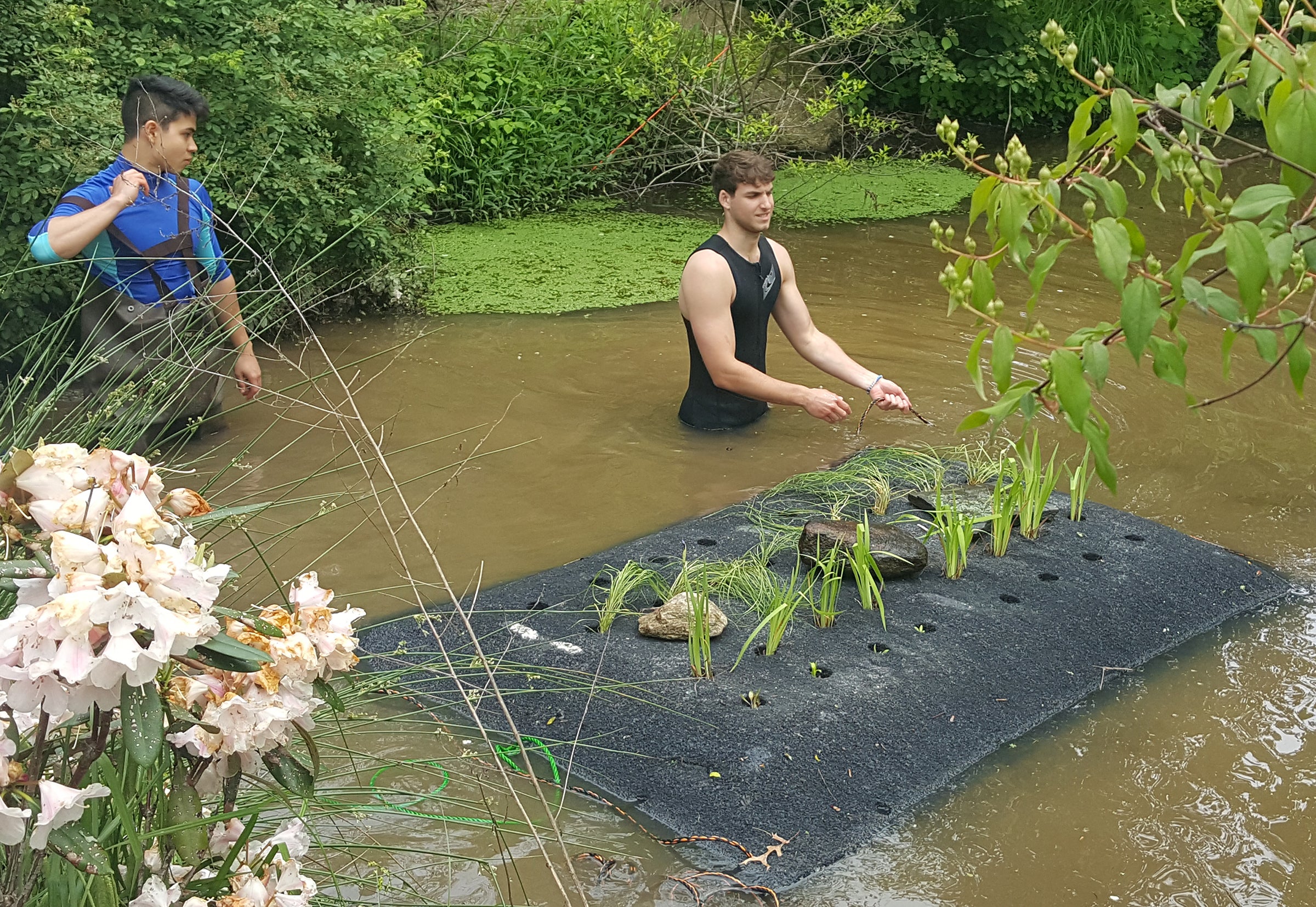KINGSTON, R.I. – August 15, 2017 – Many regions of Indonesia are struggling with how to clean up lakes and rivers that have become polluted with sewage or have had seawater intrude into them. So two University of Rhode Island hydrologists are adapting a new technology they believe will solve the problem.
They are using floating wetlands made from a mat of buoyant material planted with native vegetation that will absorb nutrients, filter out particulates, and attract contaminants.
URI Professor Thomas Boving and Assistant Professor Soni Pradhanang are testing the floating wetlands at a pond on the Kingston campus and collaborating with students at two universities in Indonesia to construct and install them.
“Floating wetlands have been around for a while, but it’s our idea to work with Indonesian universities and students to adapt them to local conditions,” said Boving, who has helped local villages improve water quality in India, Jordan, Kenya and other developing nations. “The challenge will be for the local students to find available materials, like recycled plastic bottles or plant materials, to form the basis of the floating device, and then identify the appropriate non-invasive plants for local conditions.”
Boving was invited last month to meet with the mayor of the city of Banjarmasin and its public works officials to demonstrate the technology in canals and other water bodies in the area.
“They want the city to become greener, and part of their strategy is to address uncontrolled sewage using floating wetlands in the main channel through town,” Boving said. “They’ve offered us a mile-long stretch of the canal to show how it works.”
He and Pradhanang are working with URI undergraduate students this summer to create a prototype that they expect will be ready to deploy at the end of the year.
“We’re doing some laboratory experiments in a small aquarium and bringing water in from a pond to test different materials and plants,” said Pradhanang. “It’s going to take some time for the floating wetlands to work and to see an effect on water quality, but we’re confident the approach will succeed.”
Once the URI professors have completed a prototype, they will then advise engineering students at the Universitas Islam Indonesia in Yogjikarta and the Universitas Lambung Mangkurat in Banjarmasin to identify native plants and construct the floating wetlands locally.
“Initially it will be a long-distance relationship, making sure they understand what we’re looking for, guiding them in selecting the raw materials, testing the materials for longevity, and selecting plants,” said Boving. “I’ll also assist them in developing a water sampling protocol.”
A key element of the project will be measuring its success. Boving hopes the city will provide funding to measure bacteria, nutrients, heavy metals, pesticides and other pollutants before and after the project to determine if the floating wetlands have achieved their objective.
The city has also agreed to host an international conference on sustainable development in 2018, during which the floating wetlands will be featured.

